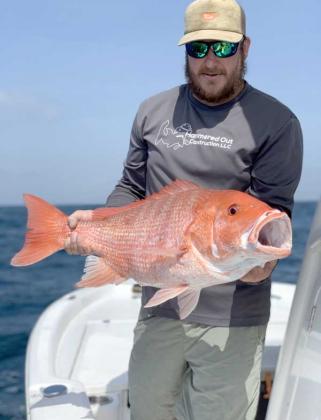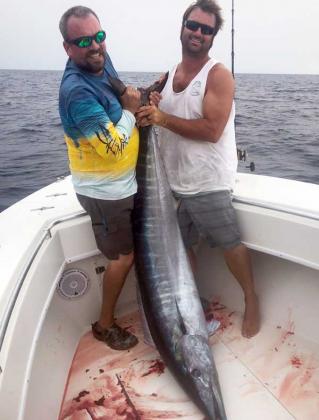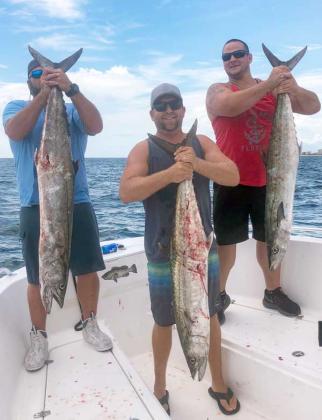They're here – the much anticipated and long awaited Atlantic red snapper days are upon us. For four – yes, four – entire days, we get to bring one fish home per person, and you better be ready to battle it out at the ramp and spot to get yours. If you aren’t geared up and ready for snapper already, this week's report will cover fishing for this rare – cough – endangered – cough – delicacy. If you don’t plan on snapper fishing and are just looking to get out on the water, this is a great weekend to explore upriver, the springs, go scalloping, go nowhere near any boat ramp close to an inlet.
As anyone who fishes offshore locally knows, the most common catch off the bottom within 25 miles or so off shore is the Atlantic red snapper; you won’t catch one here and there, you can catch them all day, on every piece of wreck, reef and live bottom around from about four miles offshore out to past 100 feet.
The complete closure of the fishery for years and our recent brief seasons are firmly a point of contention between local anglers and the regulators with NOAA.
New from the feds this year are some additional requirements for anyone fishing for them in our waters – a descending device rigged and ready to use; non-offset, non-stainless circle hooks; and, from the state, a reef angler designation on your fishing license. Luckily, the state designation is free, just go to www.gooutdoorsflorida.com to sign in with your existing license information and add the designation. This is an expansion of the Gulf reef angler program and will enter you into a survey pool for state biologists to contact. The hope is, by gathering data on the state level, FWC might be able to take over snapper management off Florida in Atlantic federal waters just like they did in the Gulf, where the recreational season is much longer.
The biggest tip I can give everyone going this weekend is to bring extra patience. The actual catching snapper part shouldn’t take long; in fact, if your fishing nearshore, it should take you about one drop per angler to catch a limit if you use the right bait (any live or cut bait) in the right spot (any wreck, reef or live bottom). With the one fish limit, this isn’t the time to chicken rig or target small fish – a palm-sized live bait or plug from a grunt or pin fish will get you the tug you’re looking for.
For terminal tackle, a dropper rig or knocker rig is all you need; five to six feet of 60- to 80-pound leader and a 7/0 non-offset non-stainless circle hook. Lock the drag down tight and hold on – a 20-pound snapper is a heck of a fight, and will test every component of your gear to get it off the bottom, out of the structure and then quickly to the boat before it gets taxed by a shark or 'cuda. You can’t fight these fish slow or with finesse over the wrecks; it’s a battle from the bite to the boat.
Besides the snapper this weekend, the kingfish bite has been hot, there’s been some cobia still around (though mostly undersize, still fun to catch), the tarpon bite has been consistent as well as the flounder inshore. Weather-wise, conditions look iffy with storms, and the forecast has been swinging back and forth daily between ideal conditions and gale-force winds – typical for snapper season. Keep an eye on the radar and the skies to the west while you're out, and stay safe.
For any questions, to book a charter trip, or to send in a report and pictures of your catch to be featured in a future report, send an email to Chris@fishjax.org.



